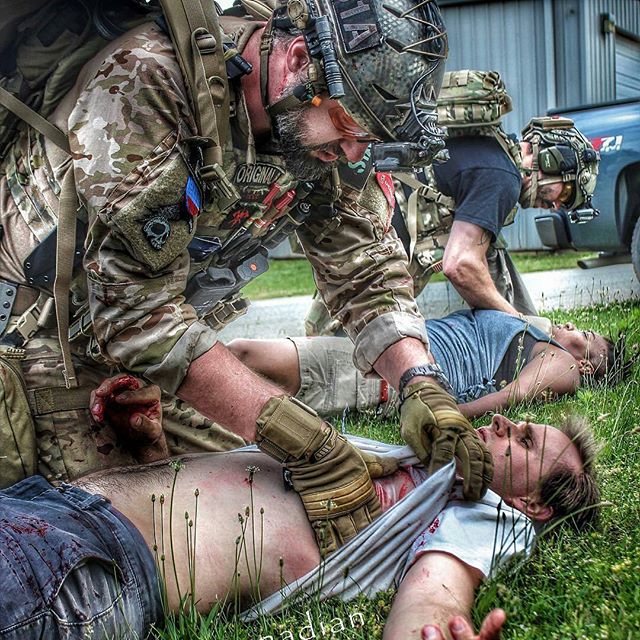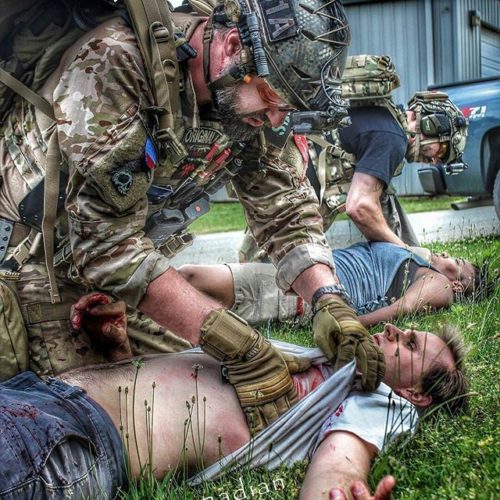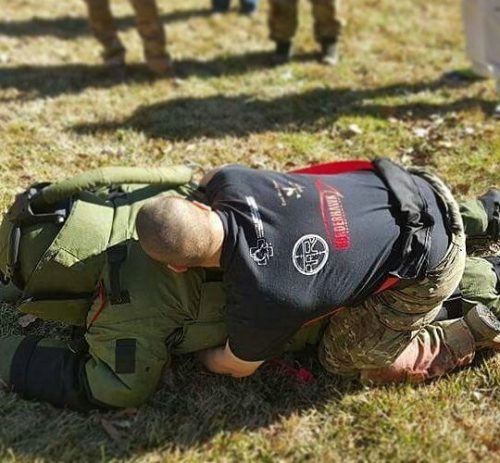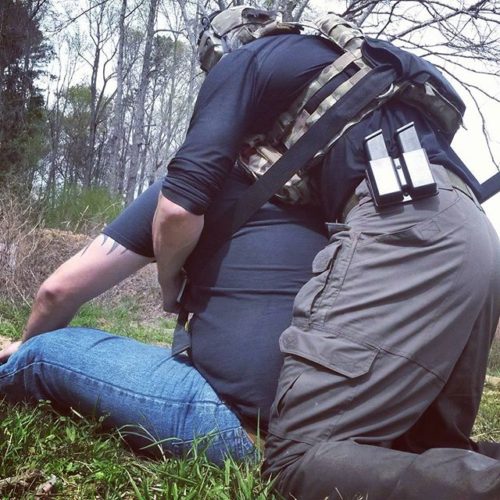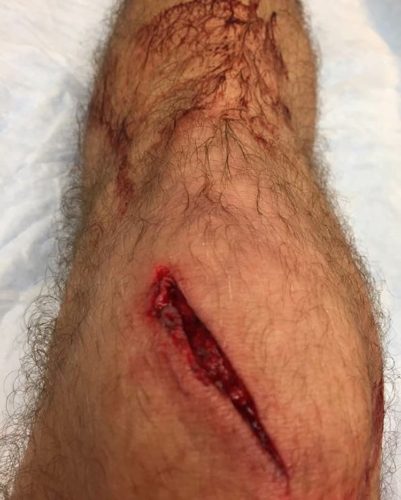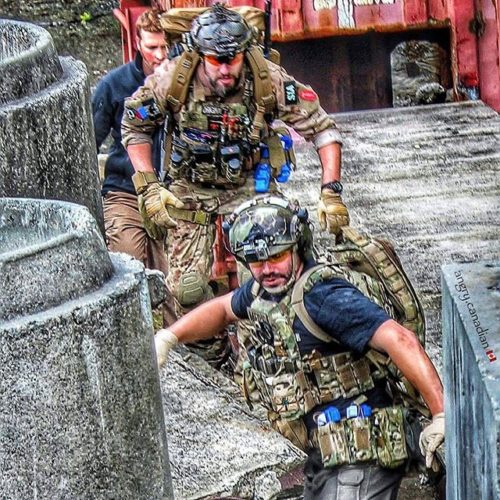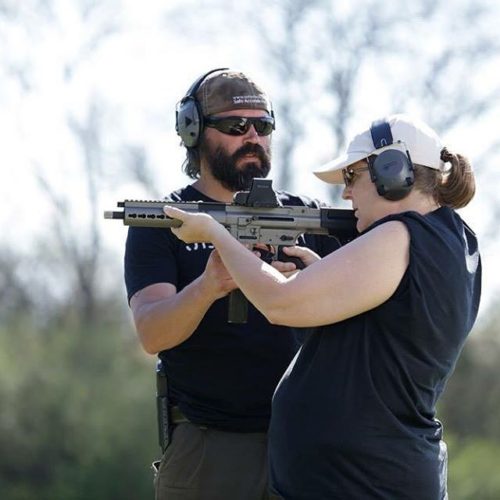The Scary Reality of Casualty Evacuation to a higher level of care:
You see it on Medical Survival and S.H.T.F. blogs often; Preppers with little to no medical knowledge or experience asking how to cut holes in people’s necks to breathe for them, push antibiotics and intravenous fluids they don’t know about, and throw in a chest tube by cutting a hole in their thoracic cavity. What if a wrong intervention is performed, or the right one but the wrong time and now the patient is worse?
Would you want someone who has never done that before to do it to you? In a life or death situation during a collapse, you may say yes as a last ditch effort. I’m not writing about not learning medical interventions as I love teaching medicine, and am one of the instructors for CAG. I’m going to explain why we should first consider alternate routes to give our patients the best chance that you could give them. Those routes are having a dedicated medical professional in the group as well as having a plan to get them to the nearest medical professional, whether that is a hospital, medical tent, volunteer center or a friendly Doc you’ve networked with down the road.
Acquiring a Dedicated Medical Professional:
I will start off this section by saying that I don’t think medical people are capable of something you are not… as long as you have the training. Keep-calm-I’m-almost-a-doctor-. That being said, finding a like-minded medical provider could be difficult to get started, but infinitely worth the rewards. While having a full-blown Doctor or Special Forces Medic would be optimal, don’t discount a Nurse, Paramedic, or even specialties like Dental Tech.
A Medical Professional is not measured solely by their title but in my opinion by their passion and willingness to learn in order to remain competent. Having a Doc will be able to help you in a situation where medical care is not available, but if they like to teach and you are eager to learn, they will more importantly cross-train the group so you can all be “mini-medics”, much akin to the Tactical Combat Casualty Care (TCCC) program where Medics train ALL their non-medical platoon mates on what to do if they are not around or get hurt.
An added bonus, is if the region you are in is unstable for long enough, the medical professional in your group could provide services to other locals for bartering, depending on their skill level. If it is a natural disaster, you could assist them in volunteering to help the affected area while learning along the way.
Simply put, a dedicated Doc can provide more in-depth medical care by not just knowing “How To”, but know “Why.” You can be taught to treat a thousand wounds, but if you come across a wound you’ve never encountered, you won’t be able to manage it unless you know how and why the anatomy, injury and intervention work. That is critical thinking.
“We simply can’t find a Medical Provider”
Finding a “prepper” minded medical professional before-hand is an ongoing process… So why not become one? I recommend to everyone, preparedness minded or not, (especially if they have children) to take a First Aid/CPR class. Inexpensive, Quick, Simple and a good way to get your foot in the door.
Not only will this let you know if medicine could be your forte or your kryptonite, but you can benefit more than just your group through what you have learned. CPR/First Aid looks good on a resume before an emergency and could come up in day to day life.
From that entry level you could go on to CNA, EMT, or even volunteer with your local firefighters to work first hand with paramedics and those who handle wounded individuals often. From First Responders you can see how calm you should act in a medical situation and grow from that, while helping the community and making friends you could possibly turn into fellow Emergency Action Group members down the road.
I’ve treated the casualty to the best of my abilities…but 911 is simply not coming:
Reason number 1 million and 1 to have an IFAK: Dropping a chainsaw on your leg. If this happens during inclement weather you may be on your own for a while. A few years ago, metro Atlanta had a snow storm that all but prevented ambulances from responding. If someone were to drop a chainsaw on their leg making firewood they would have had a bad rest of their life without an IFAK.
This is one of the most commonly neglected areas of most prepper’s medical plans. I see that they want to learn interventions far above their skill set because a Doctor is never coming… Wait, Come again? Where did all these Doctors go, did they get raptured away and disappear out of thin air?
My point is: There will always be medical pros. Just because finances, governments, resources, electricity and all else collapses, they won’t disappear. There have been Doctors who operated without electricity since the olden days that knowledge won’t simply dissipate.
Even in Katrina there were volunteer tents and triage centers when the Hospitals were overloaded or non-operational. It would have to be a very specific situation for there to be 0% chance for your patient to see the next echelon of care. The truth can be much more difficult, but the chaos of it can be managed by training: Medical Evacuation.

Set a P.A.C.E. Plan (Primary, Alternate, Contingency, Emergency), which is a fancy acronym meaning, “If Plan A Fails, Go to Plan B. If B Fails, Go to C, etc.” You’ll need to designate vehicles such as trucks, quads or even that tractor-trailer, to having to walk with a litter or SKEDCO dragging them behind you. Make sure to also ration and set aside fuel only to be used for hospital trips.
Know where the nearest hospitals are, their type, your route to get there and every different way route with maps. The distance to your regions medical facilities matter so you can plan how long it takes with different methods to get there, xx minutes by car, xx minutes by ATV, and xx minutes by foot, for example.
After that has been loosely calculated, you can road trip there with your group for a get together. If you were to have a member of your group get severely injured, how many of your group will escort him? How many will stay back to manage the property? How do you communicate if the towers are down? Which vehicle stays, which goes? When do you expect them back if you don’t have communications/radio?
This possible logistics nightmare are all to be planned and walked through in a rehearsal. This is also where you make strip maps. You may know where the nearest hospital is and scoff at this paragraph but I ask you to ponder if you are the one that is injured and someone else is unfamiliar, a major road is closed or blocked by traffic, weather or debris, or you show up and the hospital is over run with a mass casualty.
You may have a problem.
Finally, knowing whether a hospital is a level 1 or 3, A Pediatric hospital or a volunteer clinic set up after a catastrophe can make sure your time is best utilized making sure your patient has the best chance you can get. This is a good habit to establish even if you have yet to join an Emergency Action Group, or moved to a new place.
Additionally, how do you prove you can receive medical care, or can pay for it? You’ll want to bring what you’ll need to receive medical care, and more. If you can prove you have medical insurance and cash that may work.
If the grid and financial low is far beyond that leisure, make sure to bring what you will need to barter for this medical care. Gold, Food, or others measures. This can be set aside with the emergency fuel explicitly to be used only for the Casualties evacuation.
In summary, you can see how a casualty can be a culmination of all a prepper’s skills and resources. You’ll need to put your first aid skills to the test, stay calm to recognize if he needs more medical attention or not when you fall back on prior training during a moment of stress.
You will execute a plan and three more back up plans with maps to get him or her on their way to someone who knows more medicine and account for setbacks. You may need to barter for care while you are there and use your communication set up to communicate back to your main location if you will have an extended stay.
Keep learning austere/survival medicine, but also continue to account for ways you can provide them quality treatment if needed. I hope you gathered multiple thinking points to discuss with your Emergency Action Group. Most of these can be planned and talked over for the low cost of printed paper.
I 100% believe in what Austere Medicine is capable of. A handful of years ago I was a young medic in charge of the medical care for dozens of men for the first time on a remote outpost that was over 100 miles away from the nearest medical center. If the weather was too poor for a Blackhawk helicopter to get off the ground, or they were busy evacuating trauma casualties in another region to divert assets, I was all that there was.
I learned that while controlling hemorrhage is the cool meat and potatoes of trauma, I needed to learn all aspects of medicine and dive into books to truly take care of my peers. I’ve managed broken bones, heart attacks and other medical emergencies at a time where if I made the wrong call and underestimated it, my patient would die, but if I called a MEDEVAC for someone who did not need it, I would be taking up the resources from the battlefield that really needed it.
I’ve taught these lessons to U.S. Regular Army and Special Operations soldiers, to NATO soldiers and local Afghan Military and Police forces. I impart these lessons I learned to you as well, in hopes you can better the medical readiness of your EAG.
This post from our friend Jay Paisley, retired 5th Group SF and SMU. Originally published 2016
